I work 12 hour days, with driving time it’s 13. Sure there are days I am dragging to work and those days I need tea with some power in it. What is the best tea for caffeine and still tastes great? When I walk into the office I walk straight to the kitchen. Turn on the hot water and wait for the tea with the most caffeine to get me through my day.
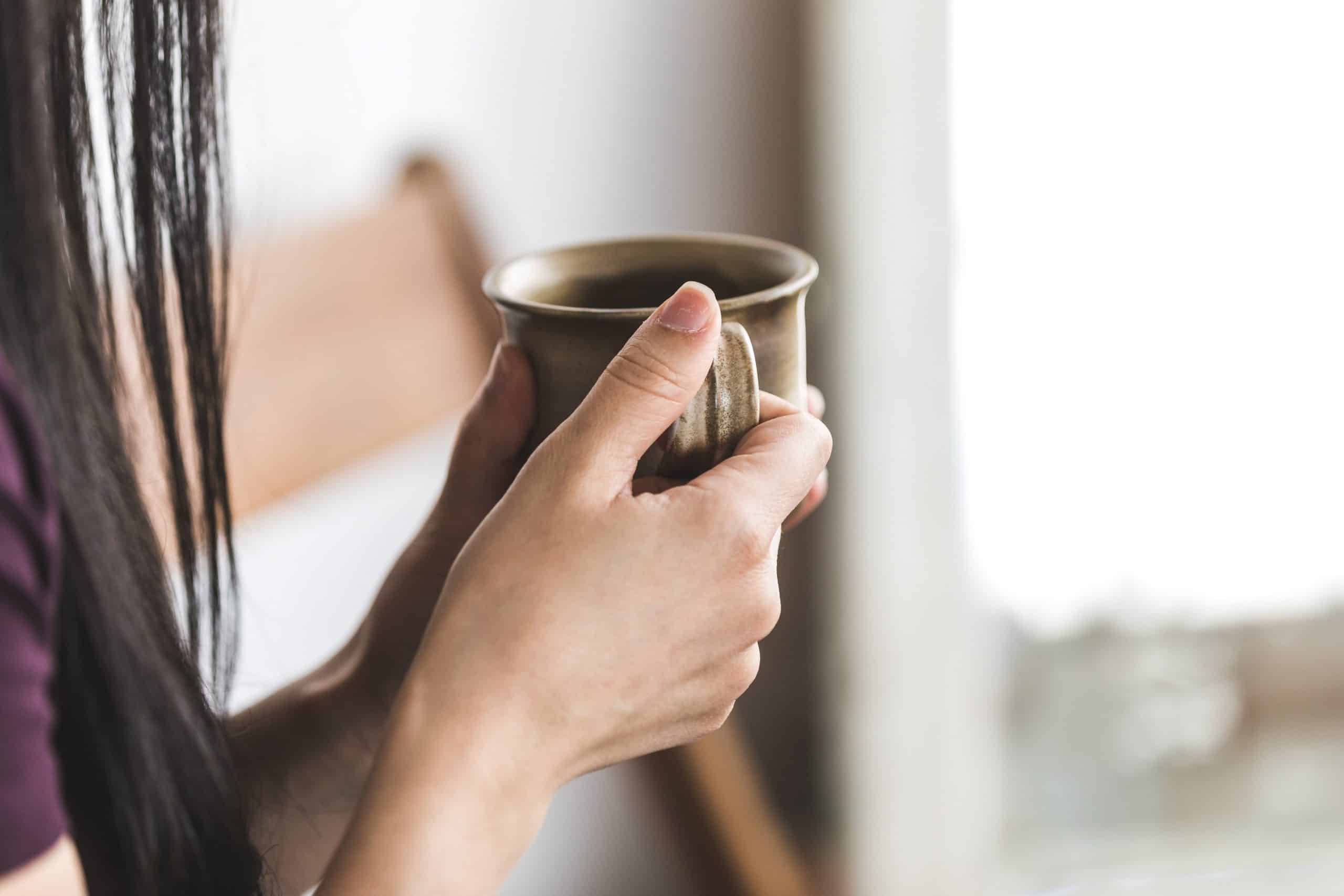
Let’s talk the best tea for caffeine
While there are a few varieties of tea there is only one tea plant. That tea comes from a singular plant, the Camellia Sinensis. While there is one plant there are several ways of preparing the leaf from that plant. In each preparation comes a variation of that plant.
There are two times of harvesting tea each year. These harvests are called flushes. Spring is the first flush and Summer being the second. While each harvest may be from the same plant the taste of each will be unique to the flush. Some teas also can have a third of the autumn harvest. Some of the best teas for caffeine come out of these harvests.
Black teas are Camellia sinensis leaves. The leaves are picked, withered, rolled, and allowed to completely oxidize.
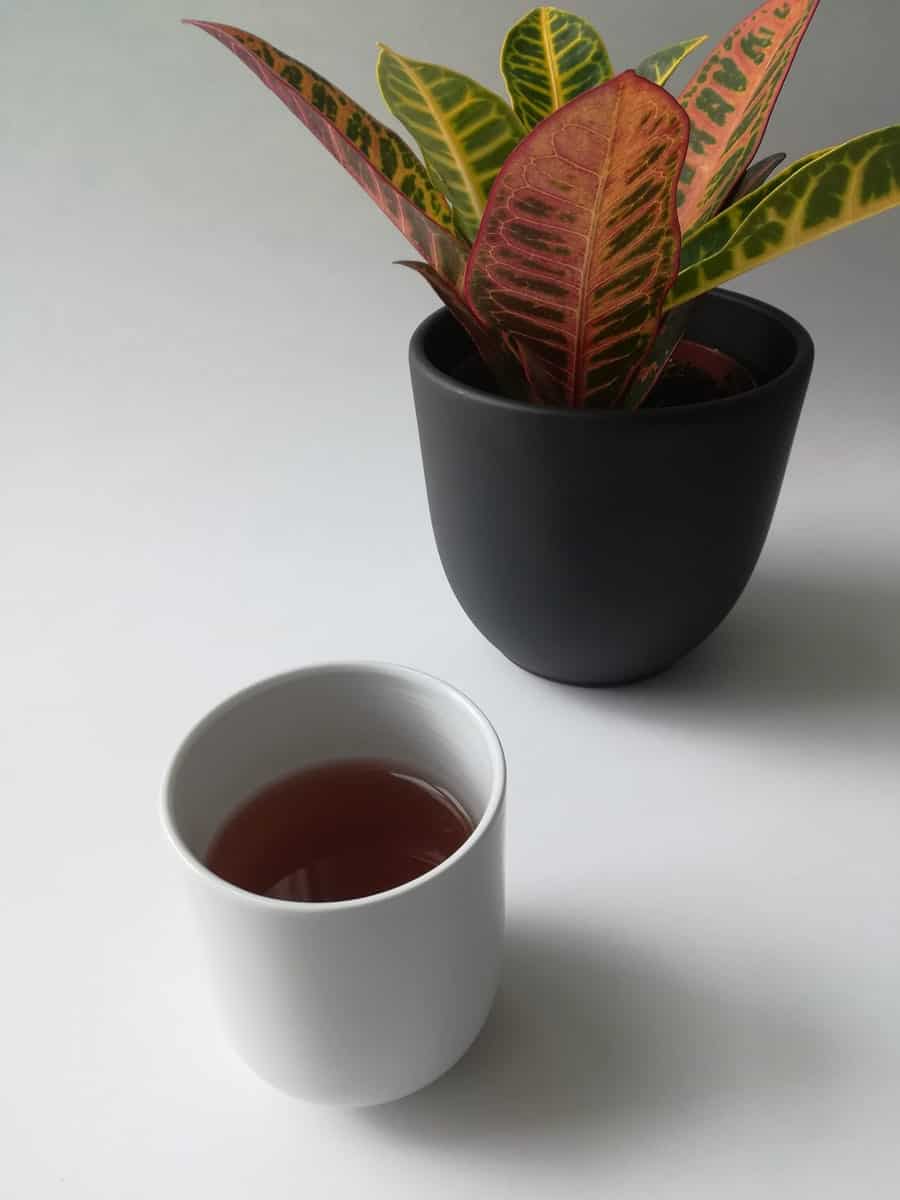
Black varieties:
- Ceylon
- Darjeeling
- Assam
- English Breakfast
- Irish Breakfast
produces the dark golden hue and also a rich, bold earthy flavor
Green Teas are created from unoxidized leaves and are the least processed of all the teas. Green tea is native to China and India. The leaves are picked, steam lightly, and dried. Green tea contains the most antioxidants as well as caffeine.
Green varieties
- Gunpowder
- Sencha
- Bancha
- Jasmine
- Gyokuro
- Tench
- Hojicha
Produces a light hue giving a mild soft flavor
White tea is the tiny, young buds of the tea plant. These buds are harvested before they come into full bloom. White tea is minimally processed and not oxidized. High in antioxidants. White tea is not white in color but more a light yellow.
White varieties
- White Peony
- Silver Needle
- Shou Mai
- Darjeeling White
- Shou Mei
- Gongmei
Oolong teas fall in the middle of black and green teas. Oolong is made from the leaves, buds, and stems of the Camellia Sinensis plant. The leaves are semi-oxidized on a wide sliding scale. Those leaves are rolled, twisted, or curled into tight balls or thin strands.
Oolong varieties
- Da Hong Pao
- Jin Xuan
- Alishan
- Iron Buddha
Oolong teas produce a mild and delightful unique flavor. Lighter than
Pu-erh tea is large mature leaves that are compressed into a ball, patty, or brick. These are then left to age or ferment to bring the leaves to their full flavor. A bold tea and can be made from both green and black teas.
Pu’erh varieties
- Kai Yuan
- Chang Hu Yao
- Yunnan Jing Ma
- Lao Kang Tuo Cha
Produces a bold flavor that is smooth, fruity, musky, grassy, and earthy.
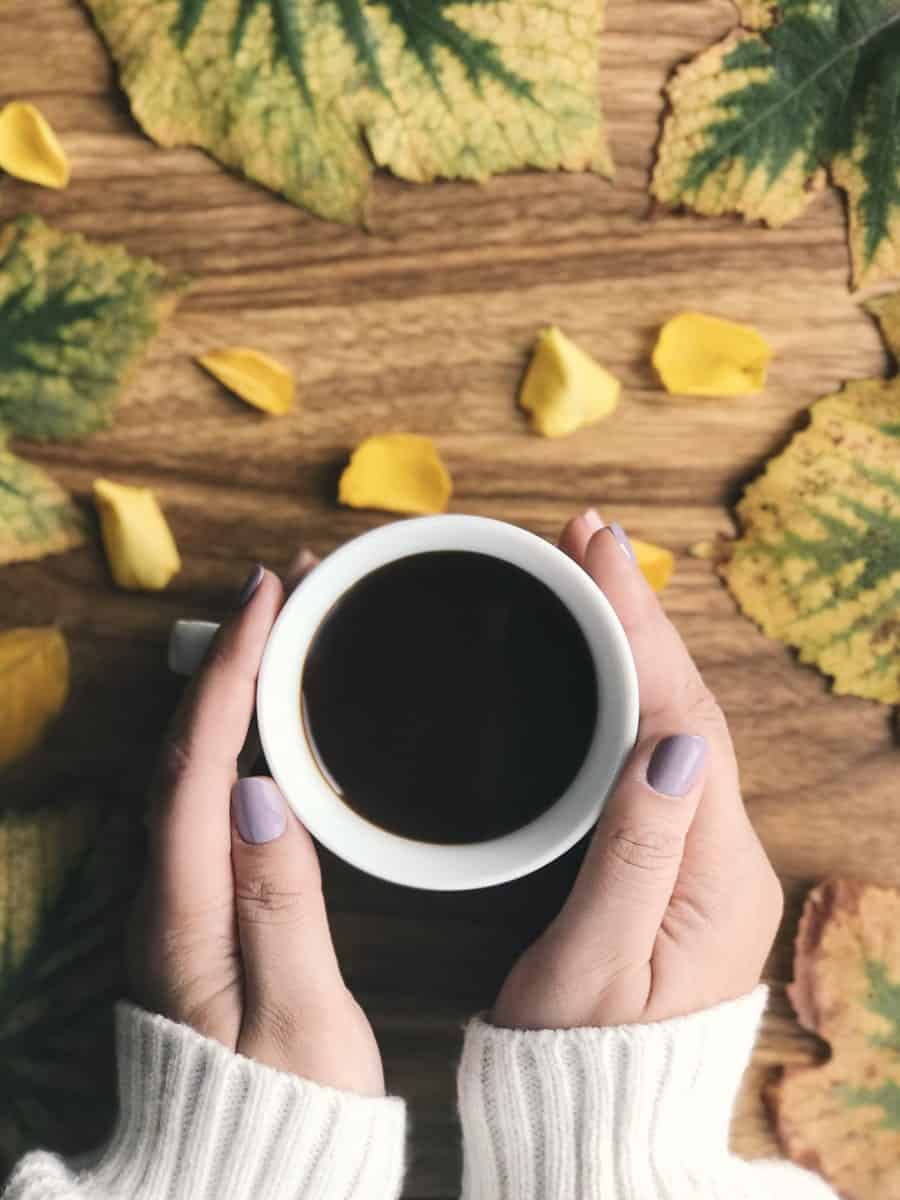
Explanation of caffeine
While we can’t always track the history of caffeine. We can track some of the most important beverages with caffeine in them.
The first known brewed tea takes us to 2737 BC. Was the best tea for caffeine brewed around 2737 B.C.? Many years later coffee was discovered. In the 1800s caffeinated beverages were introduced and following that energy drinks.
The amount of people that consume caffeine daily is approximately 80% worldwide. In North American, it’s 90%.
What happens to caffeine once consumed? Caffeine is fast-acting and it is absorbed from the stomach into the blood. From the blood, it travels into the liver where the liver does its job, breaks it down, and is shared with other organs. The main organ affected by caffeine is your brain.
Caffeine blocks adenosine which relaxes the brain and makes you tired. By blocking adenosine you no longer “feel” tired. Adenosine is what helps you get to sleep at night. Adenosine builds up and by the end of the day, you’re tired.
Caffeine can also increase adrenaline. By blocking adenosine and increasing adrenaline. This helps the body keep going when it’s tired, stressed, or should be sleeping. Caffeine effects are not long-lasting. The effects generally take about 20 minutes to reach the bloodstream, and an hour to reach its peak. After that, it’s back to the sleepy, drowsy feeling you had prior.
Because it affects your brain, caffeine is often referred to as a psychoactive drug.
Caffeine is a natural stimulant often spoken about and put in a bad light.
Did you know that because of the way caffeine affects the brain it is sometimes referred to as a psychoactive drug? So can the best tea for caffeine be the best tea for you?
While it is true that caffeine has many adverse effects there are also some good points to caffeine as well. With everything, moderation is the key when drinking a tea that is high in caffeine. Caffeine can be found in tea, coffee, and even the cacao plant.
Caffeine is bitter tasting and can also be found in:
- Coffee beans
- Tea leaves and buds
- Dola nuts
- Cacao beans
- Kola nuts
- Guarana seeds
- Yerba mate leaf
There is also synthetic caffeine, which can be added to:
- Alertness drinks
- Pain relievers
- Cold medicines
- Energy drinks
- Gum
- Jelly beans
- Waffles
- Water
- Syrup
- Marshmallows
- Sunflower seeds
- and other snacks
The amount of caffeine in your drink can be shown in the list below. Approximately:
- An 8-ounce cup of coffee: 95-200 mg
- A 12-ounce can of cola: 35-45 mg
- An 8-ounce energy drink: 70-100 mg
- An 8-ounce cup of tea: 14-60 mg
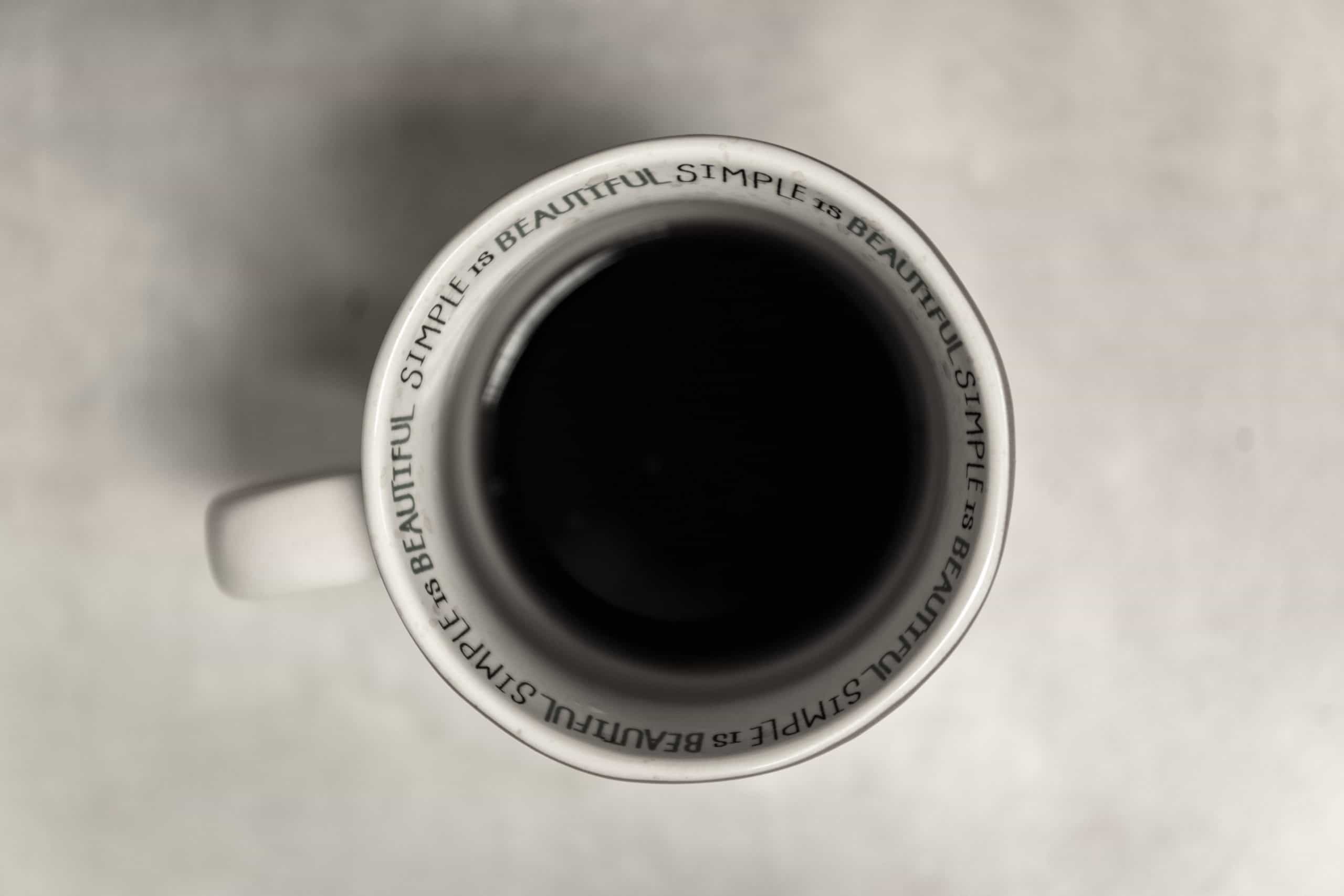
How does steeping tea affect caffeine content?
Brewing tea longer will affect the level of caffeine. Hotter water temperatures and brewing longer will release more caffeine.
Beverage
Caffeine Per 8 oz Cup
White tea
- 30-55 mg
Green tea
- 35-70 mg
Oolong tea
- 50-75 mg
Black tea
- 60-90 mg
Coffee
- 150-200 mg
Why would you need caffeine
Caffeine while considered a “drug” is acceptable and used one. 80-90% of the world using caffeine (FDA).
The benefit most people are seeking is energy. You will get that. Remember it won’t last that long. In order to keep that “high” up, you will need to consume more of a caffeinated beverage.
Caffeine does have benefits as well as precautions.
Be careful not to consume more than 400 milligrams of caffeine per day.
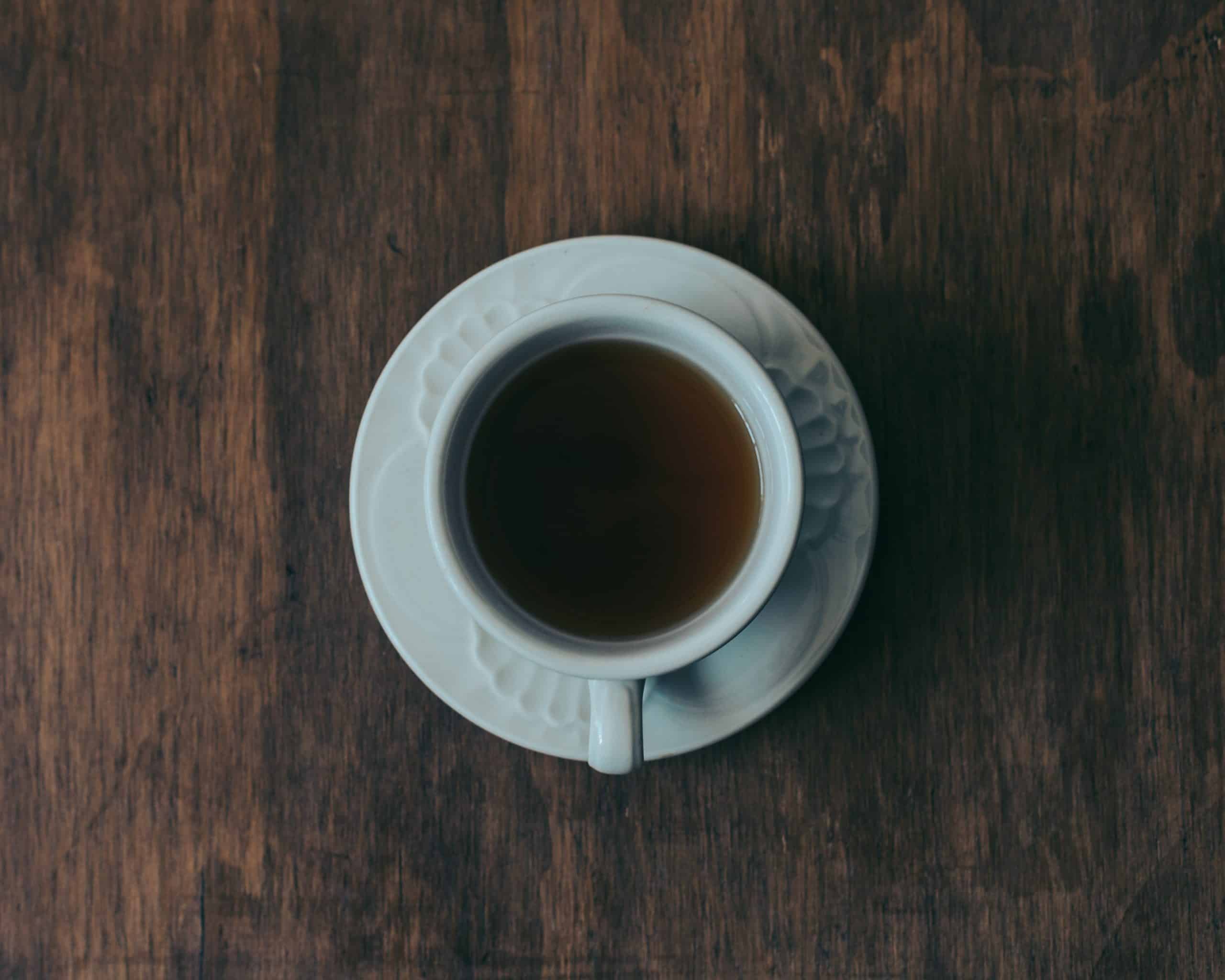
Benefits of caffeine
Weight loss – Caffeine can suppress your appetite. Making you less hungry and therefore a loss of weight.
Alertness – Caffeine can increase your alertness. By being more alert your memory, reasoning, and speed all increase as well.
Sports performance – Caffeine can improve physical performance in exercise and sports. It is short-lived and lasts as long as the caffeine.
Brain function
- As we learned earlier, caffeine affects the brain. It’s the brain and its functions that are remotely affected by caffeine. Some say it will enhance thinking and memory.
- Alzheimer’s and Parkinson’s disease
- Researchers have found that lifelong caffeine consumption may reduce the risk of developing Alzheimer’s disease.
- Studies have also reported that people with higher coffee consumption have a lower risk of Parkinson’s disease.
Memory – As mentioned previously caffeine affects the brain and may increase memory long term.
Liver and Colon – Caffeine in coffee may decrease the risk of cirrhosis of the liver and Hep C progression.
Eyelid spasm – Ever have an eye spasm? Caffeine has been shown in some studies to help a disorder known as blepharospasm. Blepharospasm is caused by an abnormal brain function.
Cataracts – Caffeine may protect the lens of the eye.
Skin cancer – Caffeine may help guard the body against some skin cancers. One team found that caffeine applied directly to the skin of mice helped prevent damaging ultraviolet (UV) light.
Kidney stones – For me, this one is a bit iffy. But according to some reports, those who drink caffeine also have a lower risk of kidney stones.
Stroke – Data from 34,670 women in Sweden. These women who were without a history of cardiovascular disease. Those women who drank more than one cup of coffee per day had a 22 to 25-percent lower risk of stroke compared with women who drank less.
Type 2 diabetes – People who lowered their daily consumption by more than one cup of coffee showed a 17 percent higher risk for type 2 diabetes.
***While it appears impressive. Most of these benefits have not been thoroughly checked or proven
Risks of caffeine
Consuming caffeine has no nutritional value. Consuming caffeine in high quantities could have an adverse reaction on some of the medications you take.
Have you ever stopped drinking your caffeine beverage for whatever reason? There is no other headache like a caffeine withdrawal headache. OUCH!
Some other symptoms or risks of caffeine withdrawal:
- Headaches
- Anxiety
- Irritability
- Drowsiness
- Achy muscles
- Dizziness
- Dehydration
- Nausea
- Symptoms of excessive caffeine
- Irregular heartbeat
- Diuretic
- Increased acidic in your stomach
- Dizziness
While pregnant a little amount of caffeine is okay but it’s best to keep that limit very low. Caffeine can pass through the placenta to the baby.
Examples of High Caffeine Teas
There are teas out there that contain high amounts of caffeine, I’ve included a few for you to choose from.
Zest Blue Lady Tea
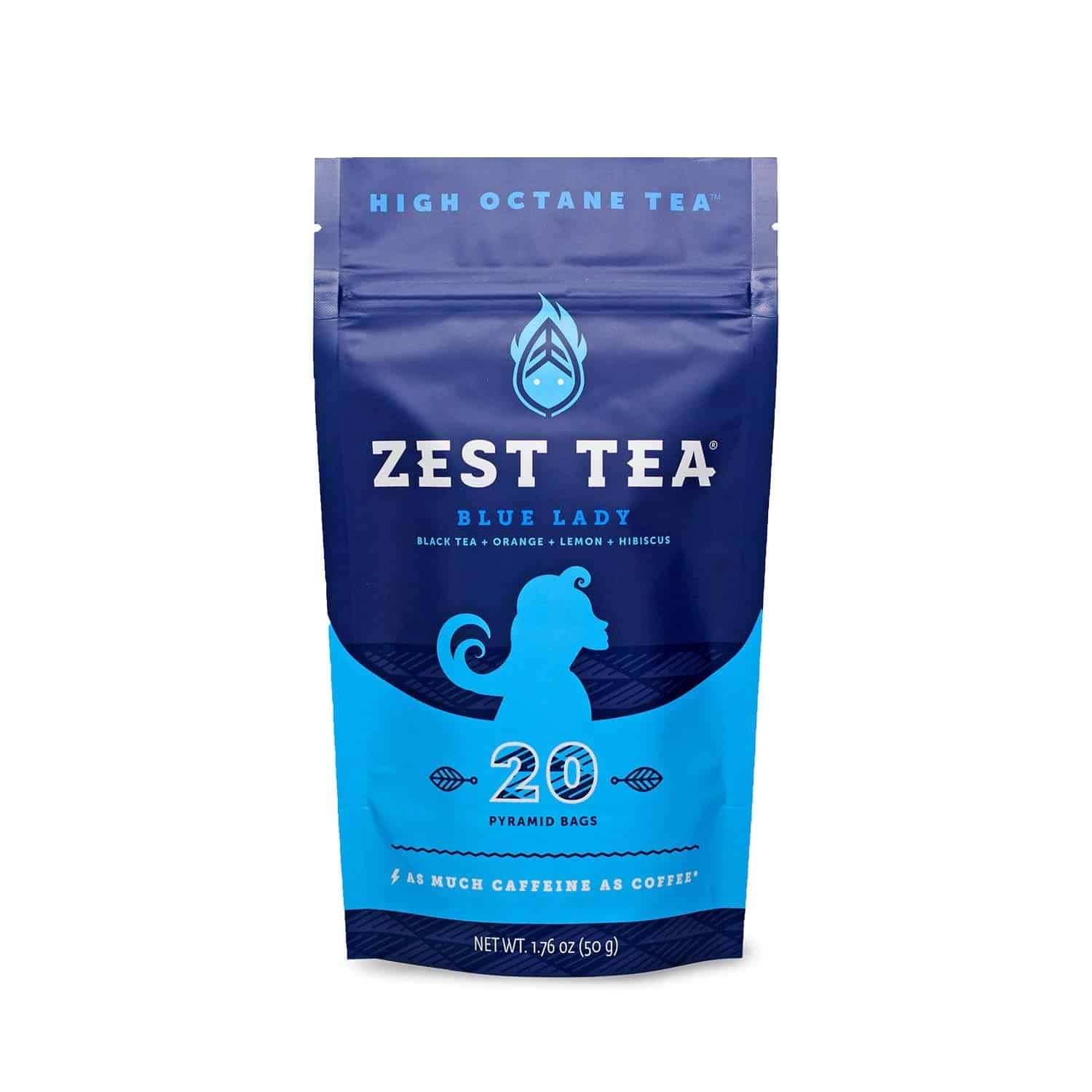
- Voted Top New Product at the 2015 World Tea Expo
- Suggested as much caffeine as coffee.
- 150 mg per cup
- 3x the energy of traditional caffeinated teas
- Packed with amino acids
- Perfect substitute for coffee
- Non-GMO
- 20 bags per pouch
Ingredients:
- South Indian Flower Orange Pekoe
Black Tea - Cornflower Petals
- Hibiscus Flowers C/S
- Orange Peel
- Juicy Lemon
- Orange
- Passion Fruit Flavor
- Natural Tea Extract
Tiesta Tea Fruity Pebbles
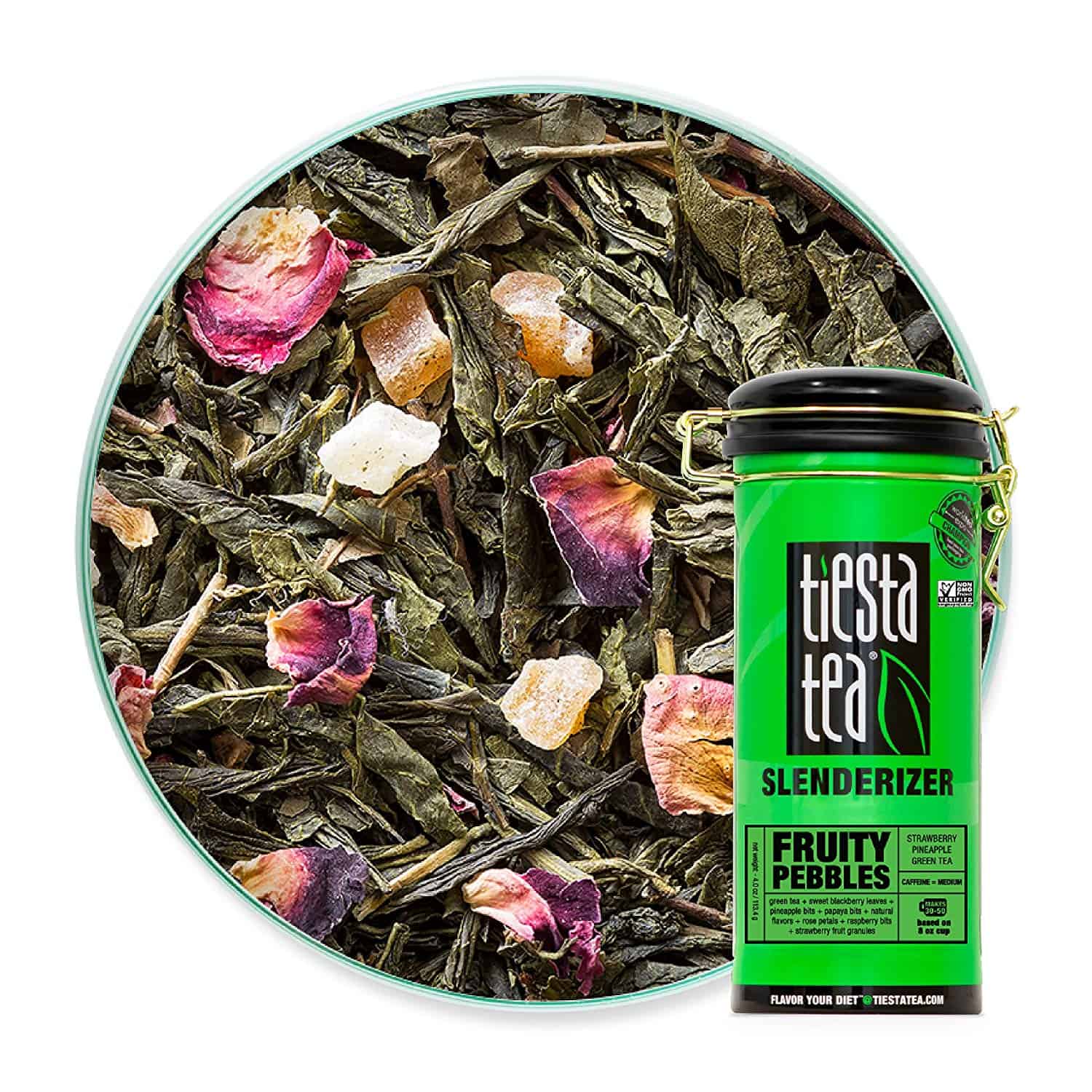
- Caffeine: Medium
- 100 % Plant-Based
- Slenderizing blend
- Boosts your metabolism
- Loose Leaf -50 servings
- Non-GMO
Ingredients:
- Green tea
- Pineapple (Pineapple, cane sugar)
- Papaya (Papaya, cane sugar)
- Black tea
- Natural flavors
- Rose petals
- Raspberry bits
- Strawberries
Hey Girl Energize
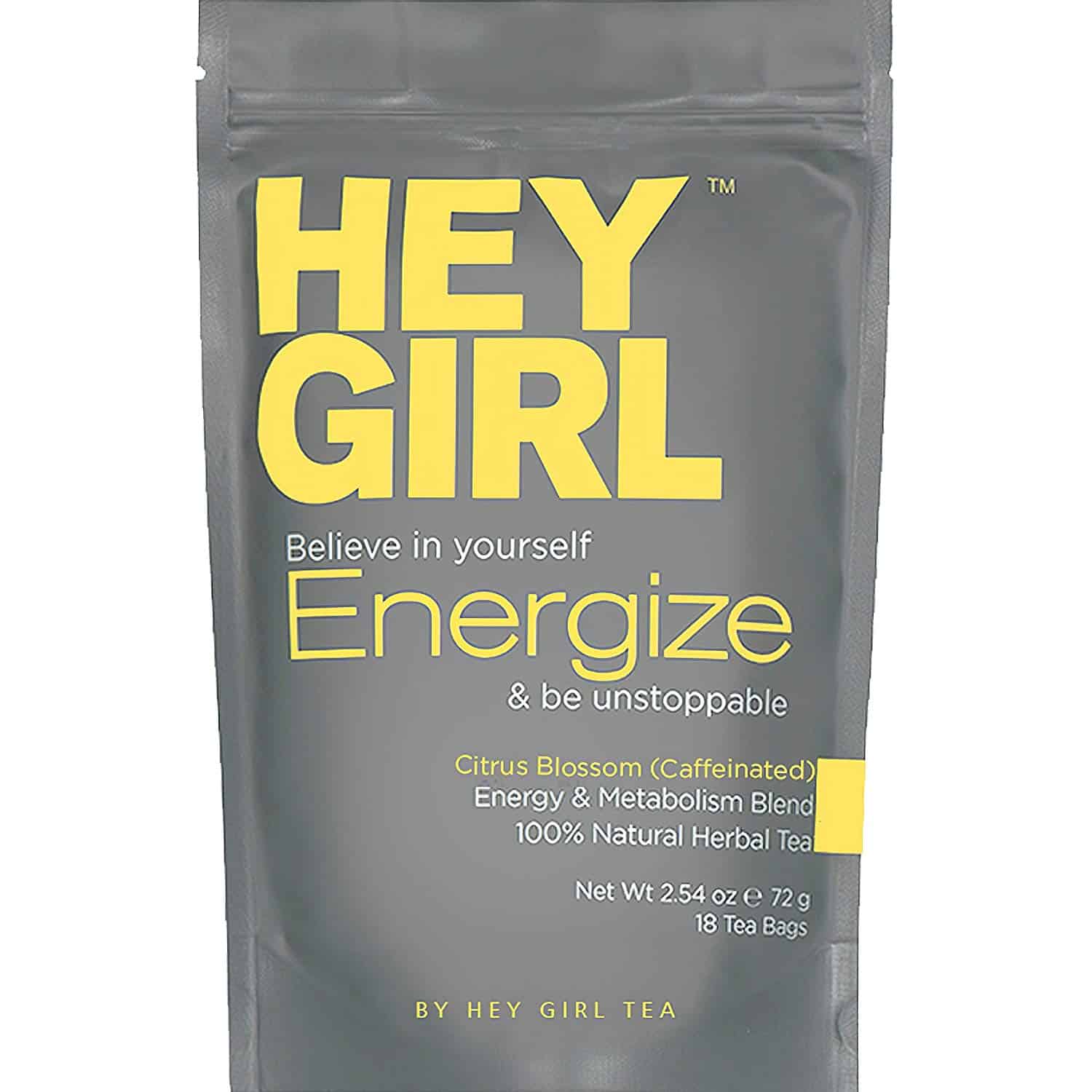
- 80 mg Natural caffeine
- Natural thermogenic fat burner
- No Jitters
- 100% Natural herbal teas
- Plant-Based teas
Ingredients:
- Green tea
- Oolong tea
- Guarana Extract
- Siberian Ginseng
- Yerba Mate
- Licorice root
- Ginger root
- Lemongrass
- Stevia
- Orange Peel
- Peppermint Leaf
- Natural Flavor
Ghograan Assam Breakfast
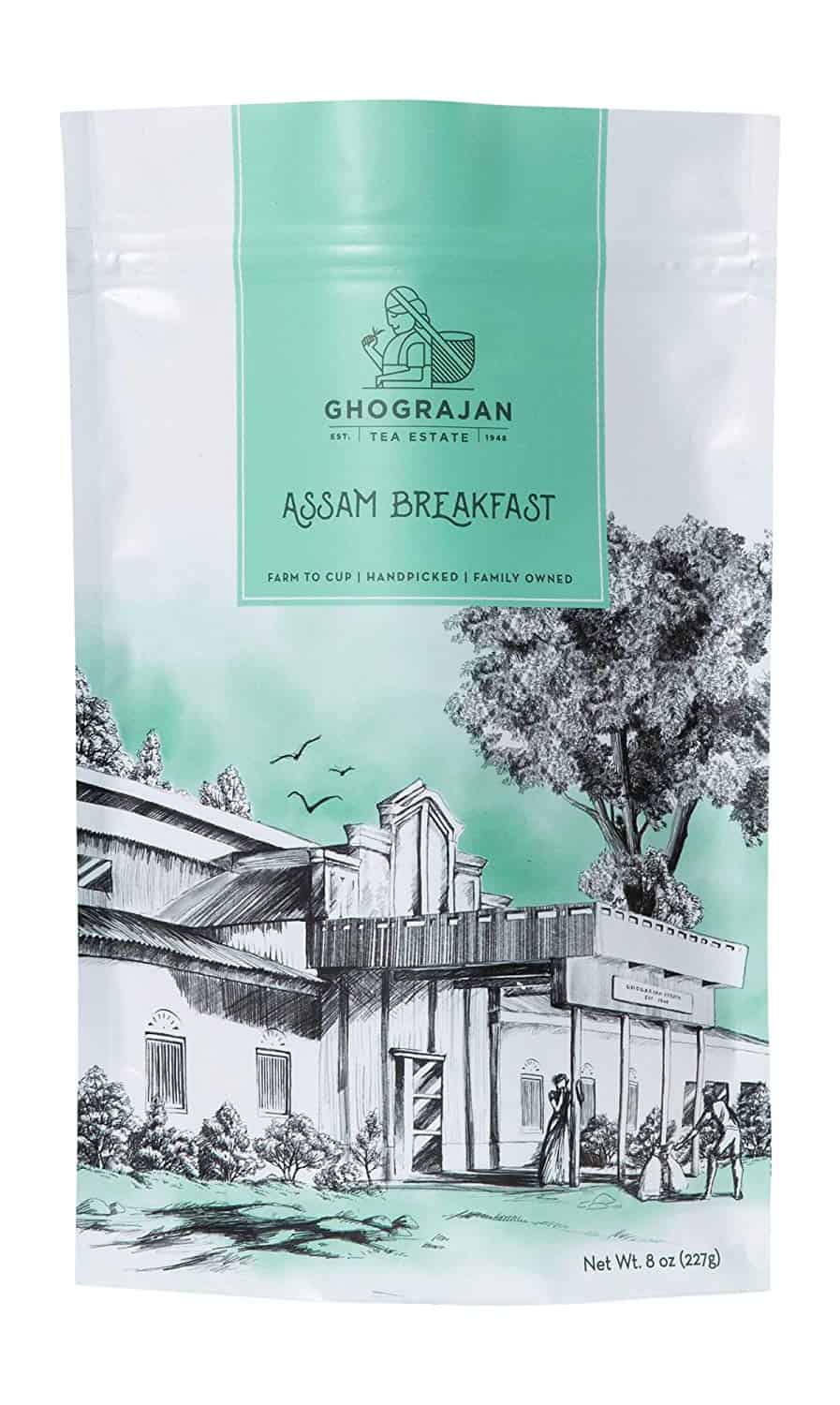
- 100 % Organic
- 100% Handcrafted
- Caffeine Level: Medium
Ingredients:
- Loose-leaf Assam
black tea - Cardamon
- Ginger
- Clove
Republic of Tea HiCaf Pom-Berry
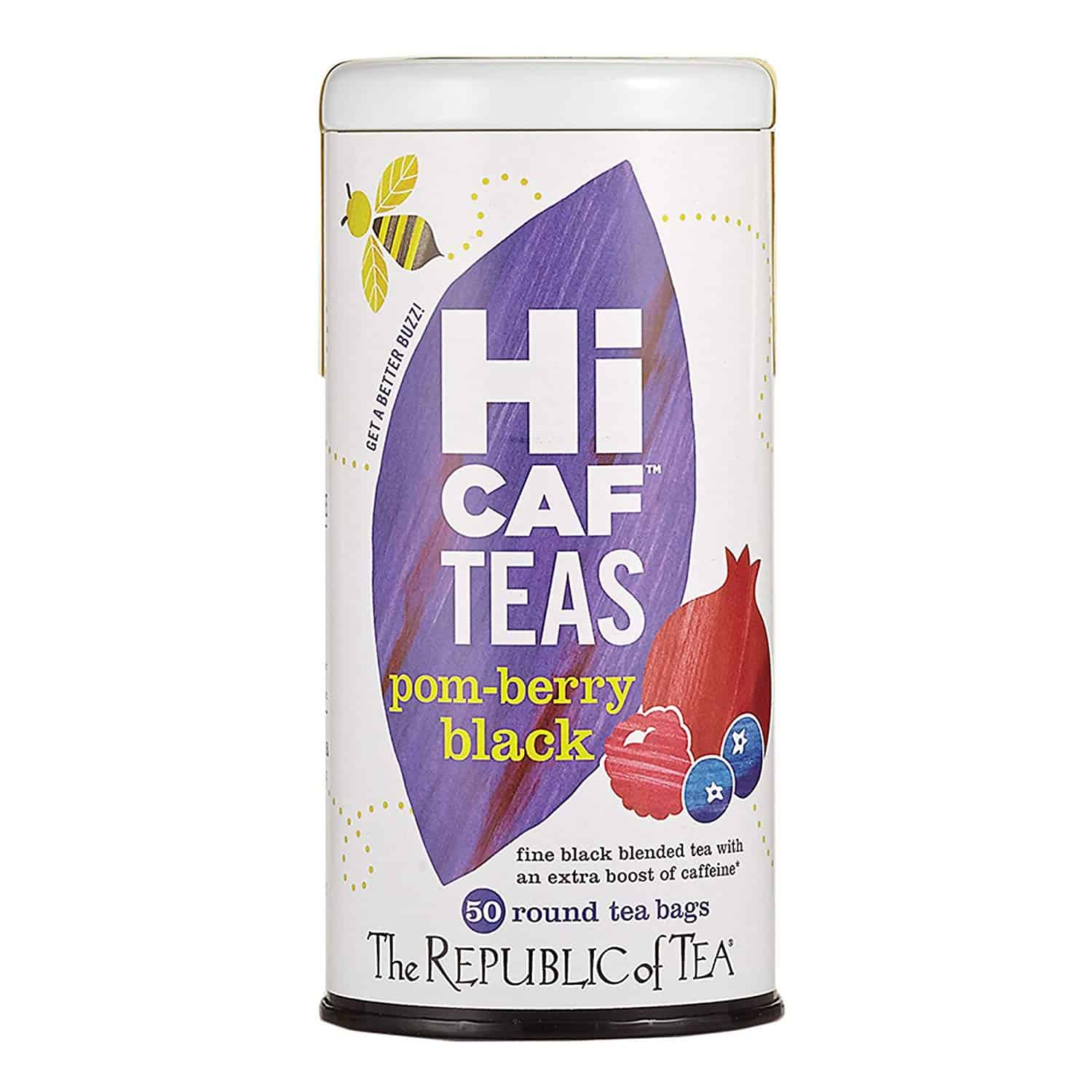
- 130 mg Caffeine
- Contains L- Theanine
- Full-bodied
- 50 tea bags
Ingredients:
- Black tea
- green tea extract
- Licorice
- Natural pomegranate
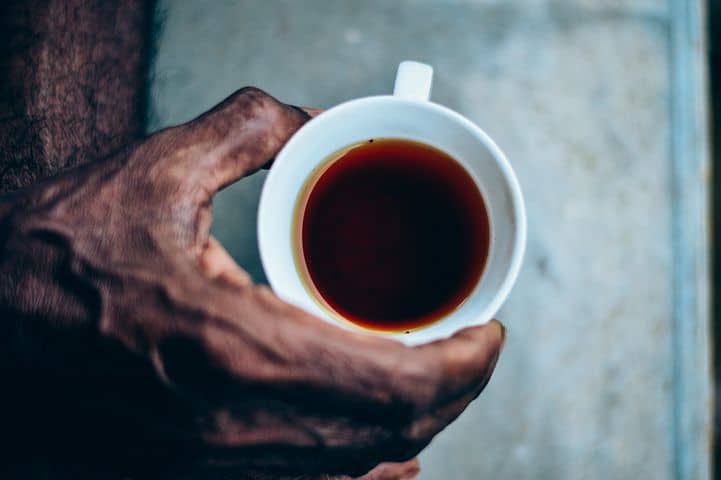
Conclusion
All teas are real teas, containing caffeine. As we look for the best tea for caffeine that is not enhanced as a high caffeine product we look toward
Black teas, such as Earl Grey and English Breakfast, are the most oxidized and flavorful tea. This also makes it the best tea for caffeine.
Each 8-ounce cup of

